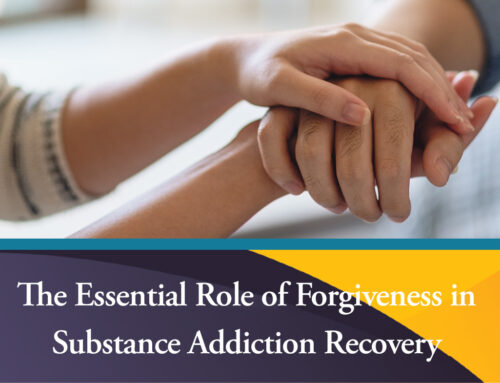Talking to a loved one struggling with addiction isn’t easy, but it’s a necessary first step. To help you navigate this, here are some do’s and don’ts so you can make this conversation as effective and compassionate as possible.
Do:
Educate Yourself
When it comes to speaking to your loved one about addiction, educating yourself about it is your biggest tool. Addiction is a disease, and the more you educate yourself, the better you will understand why your loved one is struggling. The more you understand, the easier it is to speak to them from a place of support and empathy. The ultimate goal is to help them feel like they’re not alone, and doing the work of reading and researching can help them feel supported.
Set and Keep Boundaries
Boundaries are important in every relationship. They help to protect your safety, values, time, and more. It isn’t always easy to maintain healthy boundaries when a loved one is dealing with addiction, but it’s an essential step to help them get healthy. Letting someone with an addiction overstep your boundaries can worsen your relationship with them over time. You may become self-sacrificing at the risk of your own mental health and well-being, and that’s not right. It’s okay to say “no.” Just remember that when you do, you explain why and that if they ask again, the answer will be the same.
And as important as it is to establish boundaries, it’s even more important to keep and enforce them. Don’t just tell the person you’re establishing boundaries and not keep them. If they continue to overstep, keep holding firm and tell them “no.”
Take Advantage of a Time When You’re Both Clear-Headed to Talk
There is never a perfect time to have a difficult conversation. But there are some times that are better than others. Waiting for a time when your loved one is sober and both of you are in a calm mental space can make a difference in how the conversation goes.
Many people don’t take advantage of this time because when things are going well, you don’t want to ruin the good experience. But unless your loved one gets help, the happy times will become farther and fewer between.
Give Them Space to Respond
Talking about addiction is hard for everyone involved. During the conversation, don’t pressure your loved one to respond to what you’re saying right then and there. You can offer support and explain how you’ll do so, but if you try to force them to make their next move immediately, you’ll likely be met with resistance. No one likes being told that what they’re doing is wrong. And often, they already know. While starting the conversation may be met with dismissal, over time, their feelings of hurt and betrayal may dissolve, and they’ll think about what you’ve said. Give them the time and space to reach this point and respond when they’re ready.
Help Them Take Action
Having options ready for them to get the help they need can let your loved one know that you’re there to support their efforts to change. It also shows you’re committed to improving the relationship and helping them through this difficult time. This can look like getting into therapy with them or researching recovery programs for them.
It’s important to keep in mind that you can’t force your loved one into treatment, no matter how badly you want to help. But even if they aren’t quite ready, that doesn’t mean you can’t start the research process to be ready for when they reach out for help.
Don’t:
Ignore the Issue
Pretending an addiction doesn’t exist does not help your loved one and can do more harm than good. Those struggling with addiction are prone to putting themselves in risky or dangerous situations. Not to mention the other negative physical and mental effects of drugs and alcohol. As we mentioned before, addiction is a disease, and it doesn’t get better on its own. Talking to your loved one doesn’t guarantee they’ll change, but it can plant a seed and show them the people around them care for them.
Talk Down
You never want to talk down or minimize your loved one’s experience. Addiction is so stigmatized in our society that people who have addictions often expect others to criticize, insult, belittle, and reject them. But they often don’t expect a loved one to talk down, so when they do, it can result in worsening symptoms and lashing out.
Remember, when you have the conversation, remain supportive and kind. Even if you are mad or upset, surprise them by being kind instead.
Blame Them or Yourself
When going through a difficult or painful situation, it’s not uncommon for people to look for someone to blame. And for addiction, that can mean pointing blame at the person struggling or even pointing blame at yourself.
But placing blame on them or yourself doesn’t help anything – it only adds more pain. We can’t state this enough: addiction is a disease. You don’t blame anyone for getting cancer, and the same should go for addiction.
Let Calvary Ranch Colorado Be There for You
Having that conversation with your loved one struggling with addiction can be a little intimidating, but it can be the stepping stone to getting them the help they need. If you’re looking for a recovery facility for when your loved one is ready, we can help get them their life back.
Our Rehab Ranch in Montrose, CO, is a simple place with a simple program. Calvary Ranch Colorado is located on a working cattle ranch surrounded by rivers, lakes, trees, and majestic mountain views. Abundant wildlife also shows God’s creation and adds to the tranquility of this place. Check out our What to Expect information to learn more.
If you would like to talk through any of your concerns or questions about how we can help, contact us.






